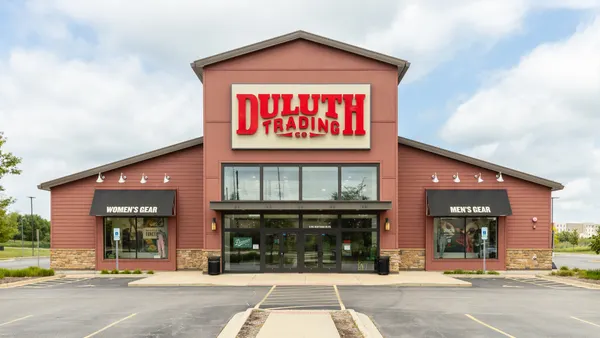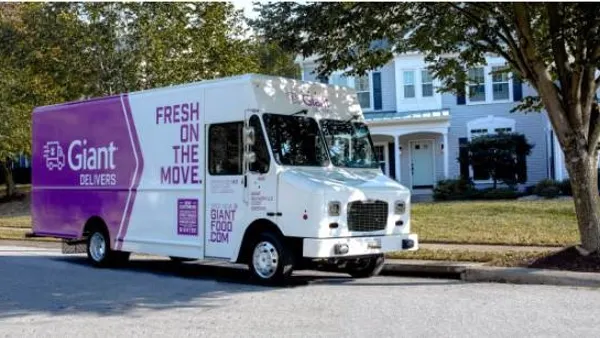Dive Brief:
- Hormel's safety stock is depleted after months of production and supply disruptions caused by the coronavirus pandemic, meaning supply for the rest of the year will depend on production consistency, executives said Tuesday.
- "The third quarter is historically when we build inventories to meet the seasonally high demand in the fourth quarter. However, the record sales in our third quarter has led to abnormally low levels of inventory, which further limits our ability to meet demand in key categories," Hormel CEO Jim Snee said on a Tuesday earnings call. Hormel temporarily closed five plants in April due to coronavirus outbreaks among plant workers or in the immediate area.
- The company posted an additional $20 million in supply chain costs in the third quarter and expects to spend $80 million to $100 million on supply chain worker bonuses and safety measures for the full fiscal year, Snee said. Hormel has instituted automated temperature screenings, staggered shifts and increased training.
Dive Insight:
"The team's done a great job but we can't afford any disruptions," Snee said. "And although we're not seeing the level of outbreaks of [COVID-19] cases and we are still having cases on occasion and those cases can have production impact."
Hormel's business has shifted dramatically away from food service toward retail at the same time it is experiencing disruptions to production and supply.
During the pandemic, food and beverage sales have increased to near or above levels traditionally seen during the holiday season. The latest numbers from the Census Bureau show food sales grew more than 11% in July compared to the same month last year.
"In many businesses, we are producing more products than we ever have to meet the increased demand," Snee said. Year over year inventory change isn't a relevant measure with the food service part of Hormel's business largely out of commission, executives said. Inventory decreased by 6% from Q2 to Q3 in what would normally be a building phase for the company.
A vertically integrated supply chain, usually a cost-savings driver, meant disruption to production of certain brands within the company was more keenly felt in the supply chain and on the balance sheet. Snee expressed confidence that the production shortfalls would not cause the company to sacrifice shelf space at the grocery store.
But Hormel's position demonstrates that for many manufacturers, the ability to keep up production and stay in stock is one and the same with the ability to keep the virus at bay.
The company will rely more heavily on co-packers going forward to sure up supply, according to CFO Jim Sheehan.














